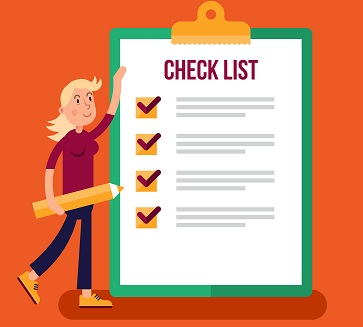Moving can be a stressful and overwhelming experience, but with proper planning and organization, it doesn’t have to be. A well-structured moving checklist is the key to ensuring that your transition is smooth and seamless. Knowing what to pack and when is essential to avoid the last-minute rush. This detailed guide provides a comprehensive checklist for a stress-free move, broken down by the weeks leading up to moving day.
8 Weeks Before the Move: Planning and Preparation
At this early stage, the focus should be on planning and preparing for the move. The following tasks will set a solid foundation for a smooth moving process:
Create a Moving Folder or Binder
Start by creating a dedicated moving folder or binder where you can store important documents, contracts, receipts, and a checklist of things to do. This will help you stay organized and track the moving process.
Research Moving Companies
Begin researching and comparing different moving companies. Look for those with excellent reviews, and be sure to get quotes from at least three different movers. Make sure to check if they are licensed and insured for added security.
Budget for Your Move
Create a detailed moving budget to estimate how much your move will cost. Factor in expenses like moving supplies, the moving company, or rental truck fees, and any additional services like packing or storage.
Declutter Your Home
Use this time to declutter your home and get rid of items you no longer need. Donate, sell, or recycle unwanted items to lighten the load for the move and reduce packing time.
Notify Schools and Medical Providers
If you’re moving out of your current city or state, notify your children’s school, and arrange for their records to be transferred. Similarly, inform your medical providers, and request copies of medical records for you and your family.
6 Weeks Before the Move: Organizing and Sorting
At the six-week mark, it’s time to start organizing and sorting your belongings in preparation for packing. Here’s what you need to focus on:
Purchase Packing Supplies
Start gathering all the packing supplies you’ll need, such as boxes, packing tape, bubble wrap, and markers. Consider using eco-friendly packing supplies, or look for gently used boxes from local businesses.
Begin Packing Non-Essentials
Start packing items that you won’t need in the coming weeks. This includes seasonal clothing, décor, books, and rarely used kitchenware. Be sure to label each box with its contents and the room it belongs to.
Take Inventory of Valuable Items
If you have valuable items, such as jewelry, electronics, or important documents, take an inventory and consider how you will move them. Some items may need to be transported personally or insured separately.
Arrange Time Off from Work
If you’re working, now is the time to arrange time off for the days surrounding your move. Make sure to coordinate this with your employer well in advance to avoid any last-minute conflicts.
4 Weeks Before the Move: Start Packing in Full Swing
By this point, the move is getting closer, and packing should now be a primary focus. Use the following checklist to stay on track:
Pack Room by Room
Start packing one room at a time to keep the process organized and manageable. Begin with the least-used rooms, like guest bedrooms or basements. Label boxes with both the contents and the destination room for easy unpacking.
Take Care of Utilities
Contact your utility providers to notify them of your move. Arrange for the disconnection of utilities at your old home and the activation of services at your new address. This includes electricity, water, gas, internet, and cable services.
Confirm Moving Arrangements
Confirm your booking with the moving company or truck rental. Double-check all details, including the moving date, pickup time, and any additional services you may need, such as packing or storage.
Address Change
Submit a change of address form to the postal service so your mail is forwarded to your new home. Also, notify other essential parties, such as banks, insurance companies, and subscription services, of your upcoming move.
2 Weeks Before the Move: Fine-Tuning the Details
With two weeks to go, your focus should shift to fine-tuning the moving plan and finalizing all remaining details.
Pack the Kitchen
Start packing your kitchen items, keeping only the essentials that you’ll need in the final days. This includes everyday dishes, cookware, and utensils. Perishable foods should be eaten or donated, as they are difficult to transport.
Notify Friends and Family
Let your friends and family know about your new address and moving date. You may also want to plan a small get-together or farewell party before you leave.
Arrange Child or Pet Care
If you have young children or pets, make arrangements for someone to take care of them on moving day. This will help ensure that they are safe and out of the way while movers are working.
Set Aside Essentials
Create an essentials box that contains items you’ll need immediately after the move, such as toiletries, a change of clothes, chargers, important documents, and basic tools for unpacking.
1 Week Before the Move: Final Preparations
The final week before the move is all about wrapping up loose ends and ensuring everything is in order for moving day.
Finish Packing
By now, most of your belongings should be packed. Focus on finishing any remaining packing, and make sure all boxes are labeled clearly. Keep your essentials box easily accessible.
Clean the House
Plan to clean your old home thoroughly after everything is packed. You may want to hire professional cleaners, especially if you’re moving out of a rental property and need to ensure you get your deposit back.
Disassemble Furniture
Disassemble any furniture that will be challenging to move as is. This could include bed frames, large shelving units, or tables. Keep all screws, bolts, and other hardware in labeled bags to avoid losing them.
Prepare for Moving Day
Confirm the moving day schedule with your movers. Make sure they have the correct address, and let them know if there are any special considerations, such as parking arrangements or elevator access.
Moving Day: The Big Day
The day has finally arrived! Here’s how to make sure it goes off without a hitch:
Meet the Movers
Be available when the movers arrive to answer any questions and provide direction. Walk them through the house and point out any fragile or high-priority items.
Do a Final Walkthrough
Before you leave, do a final walkthrough of your old home. Check all closets, cabinets, and drawers to ensure nothing is left behind. Also, turn off all lights, lock doors, and windows, and hand over the keys if necessary.
Stay Hydrated and Relax
Moving can be physically and mentally taxing, so make sure you stay hydrated throughout the day. Take breaks as needed, and don’t hesitate to ask for help from friends, family, or movers.
Conclusion
By following this comprehensive checklist, you’ll be well on your way to a stress-free move. Staying organized, packing methodically, and addressing key tasks at the right time are the best ways to ensure that everything goes according to plan. While moving can be challenging, proper preparation can help make it a positive experience.



